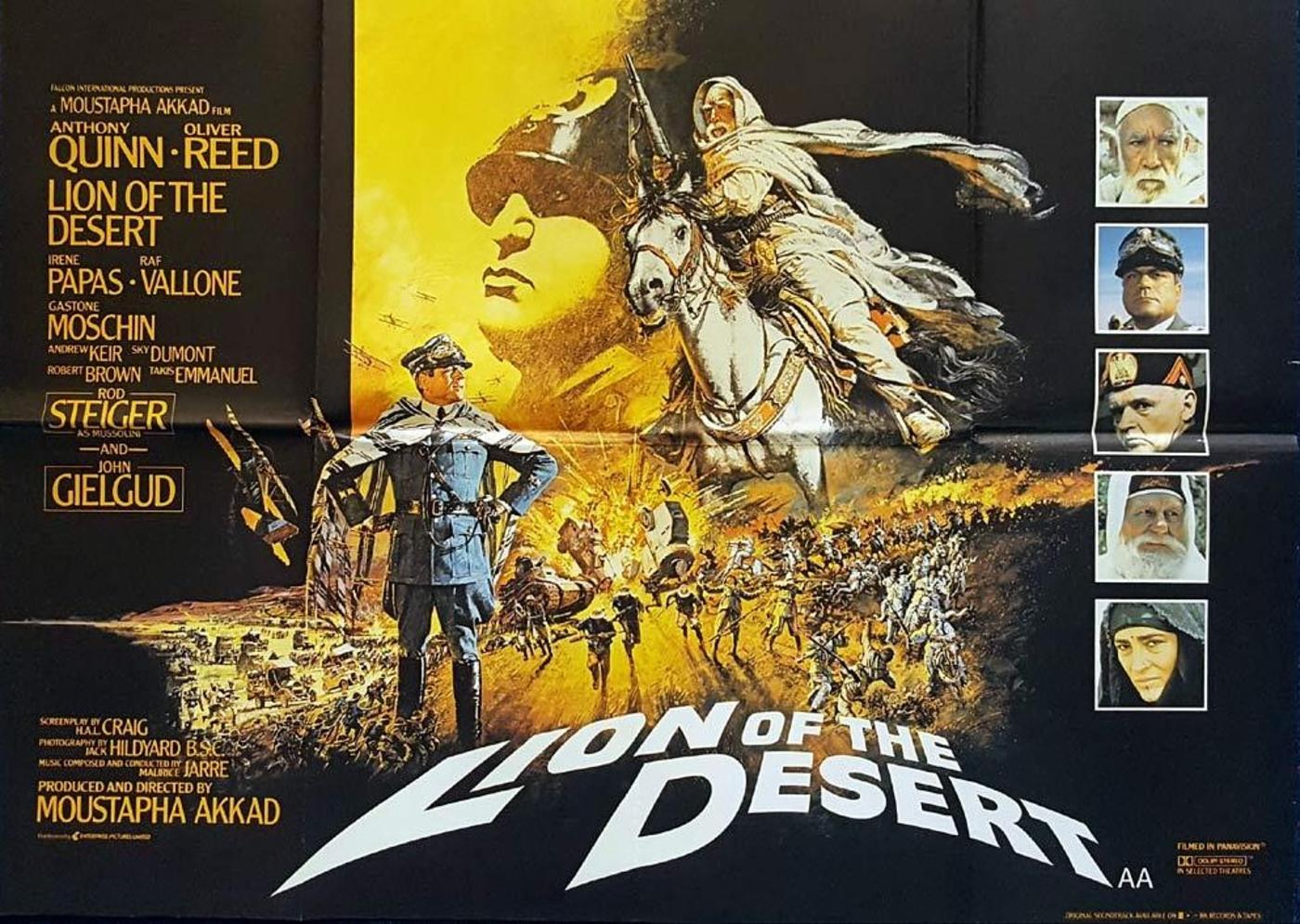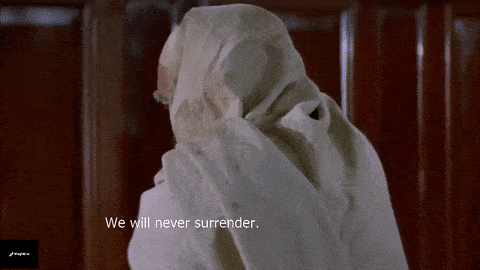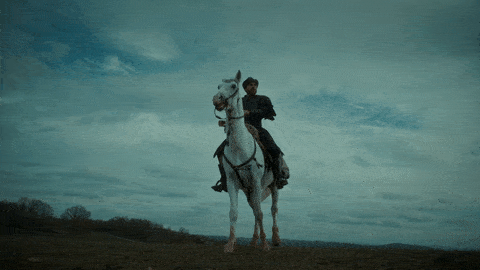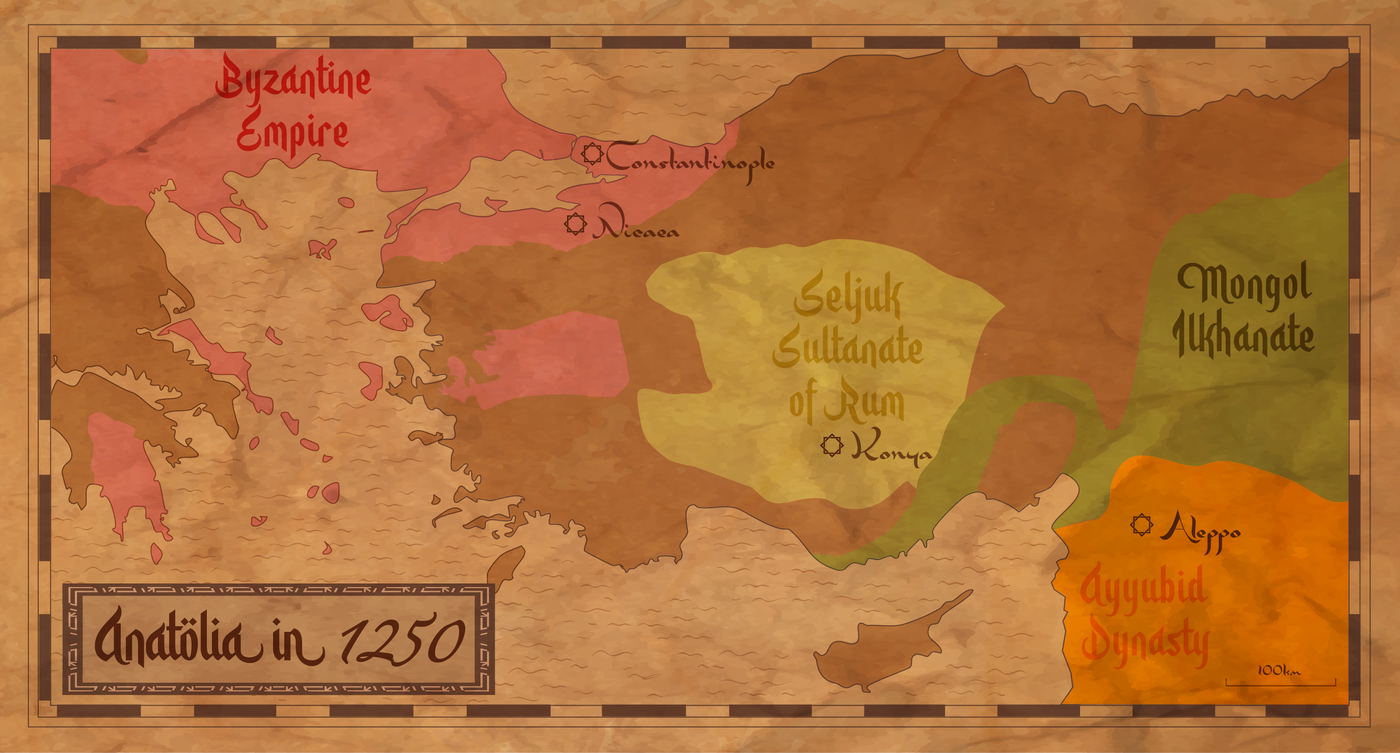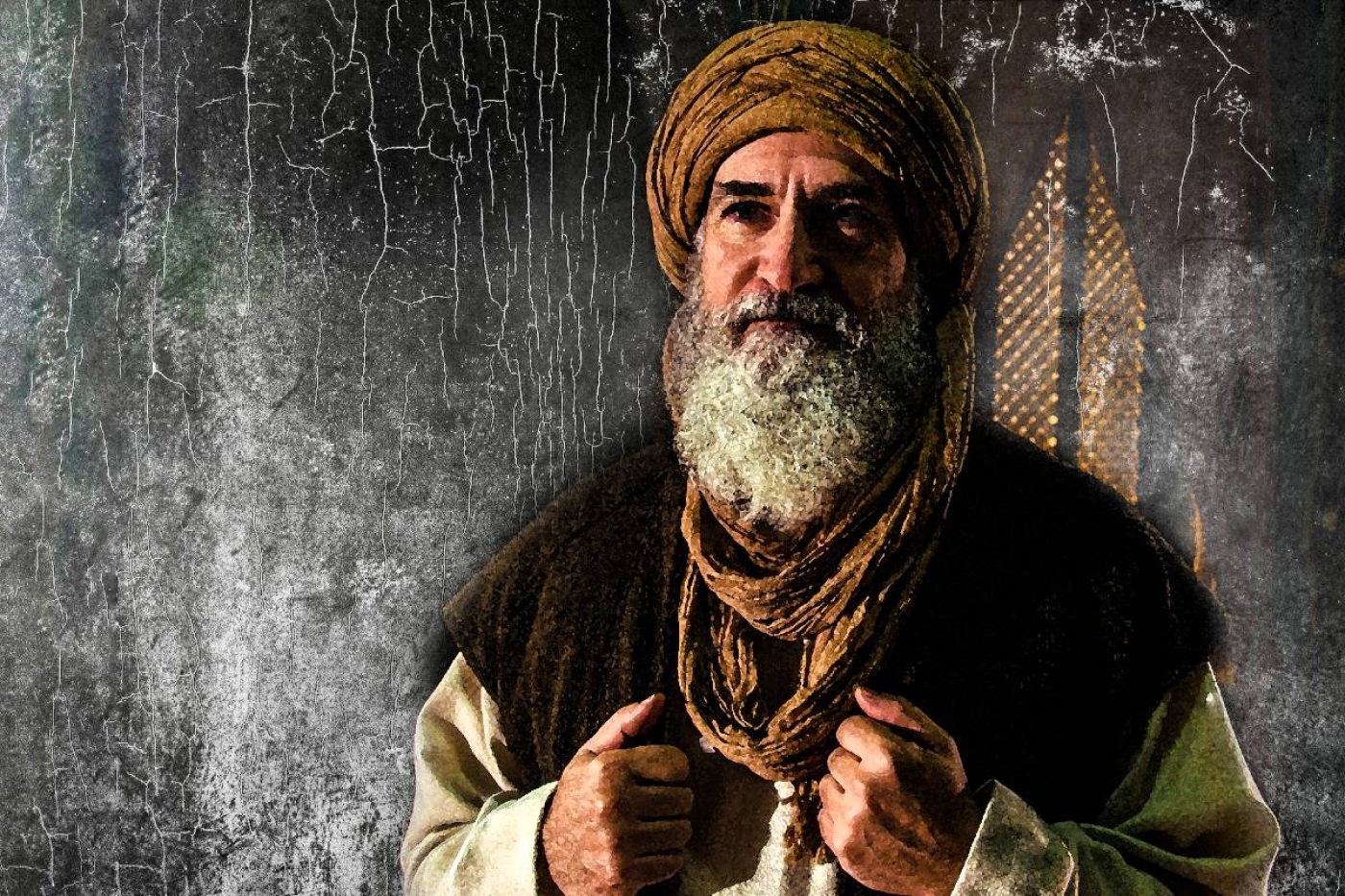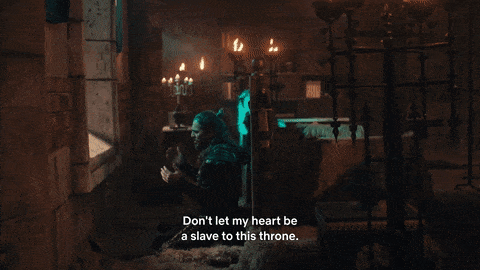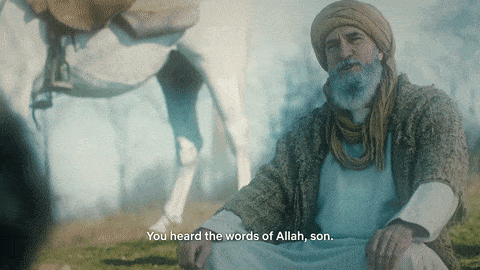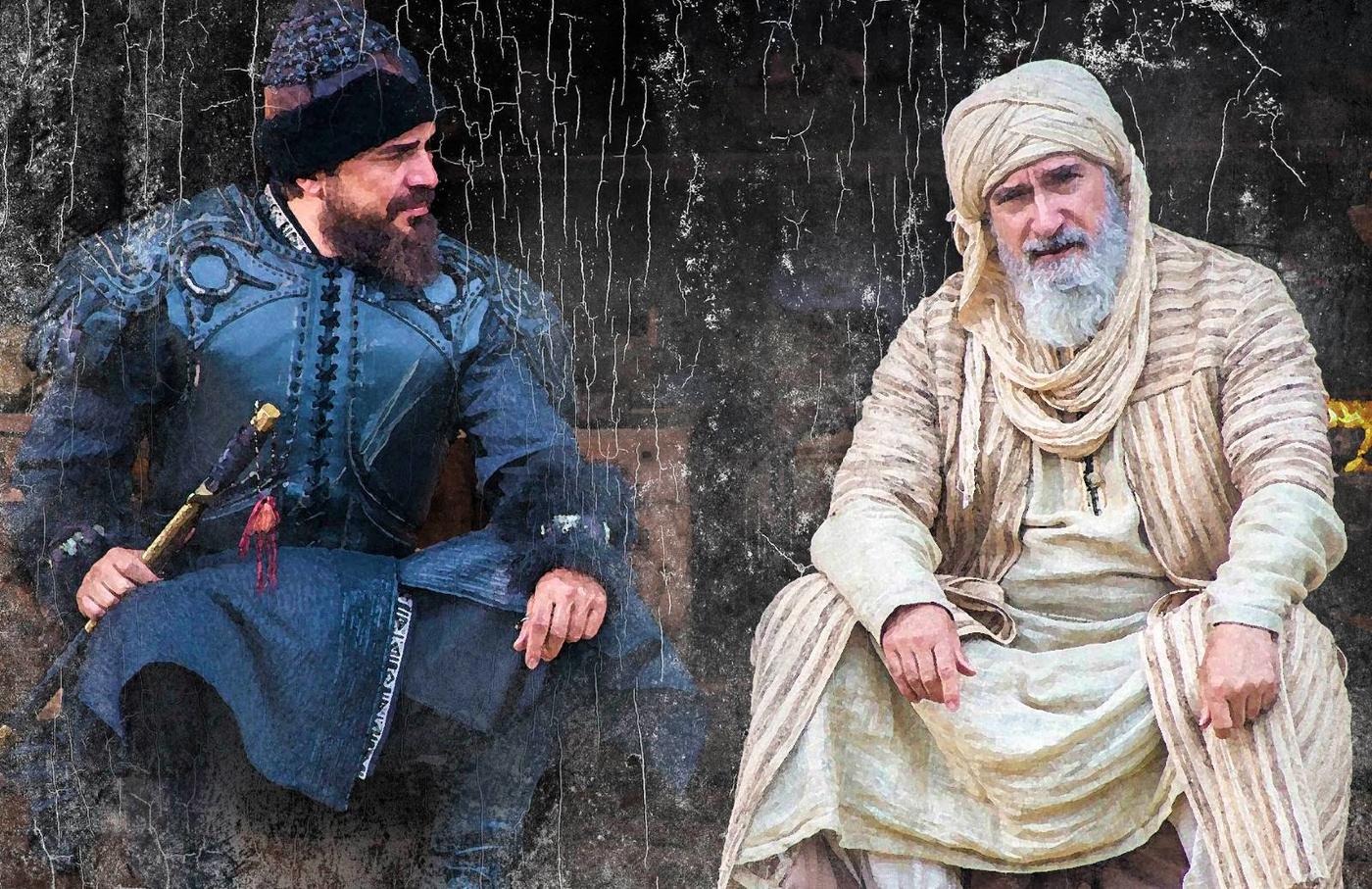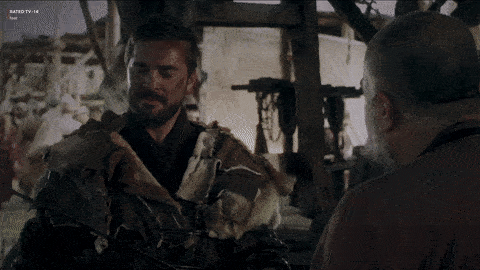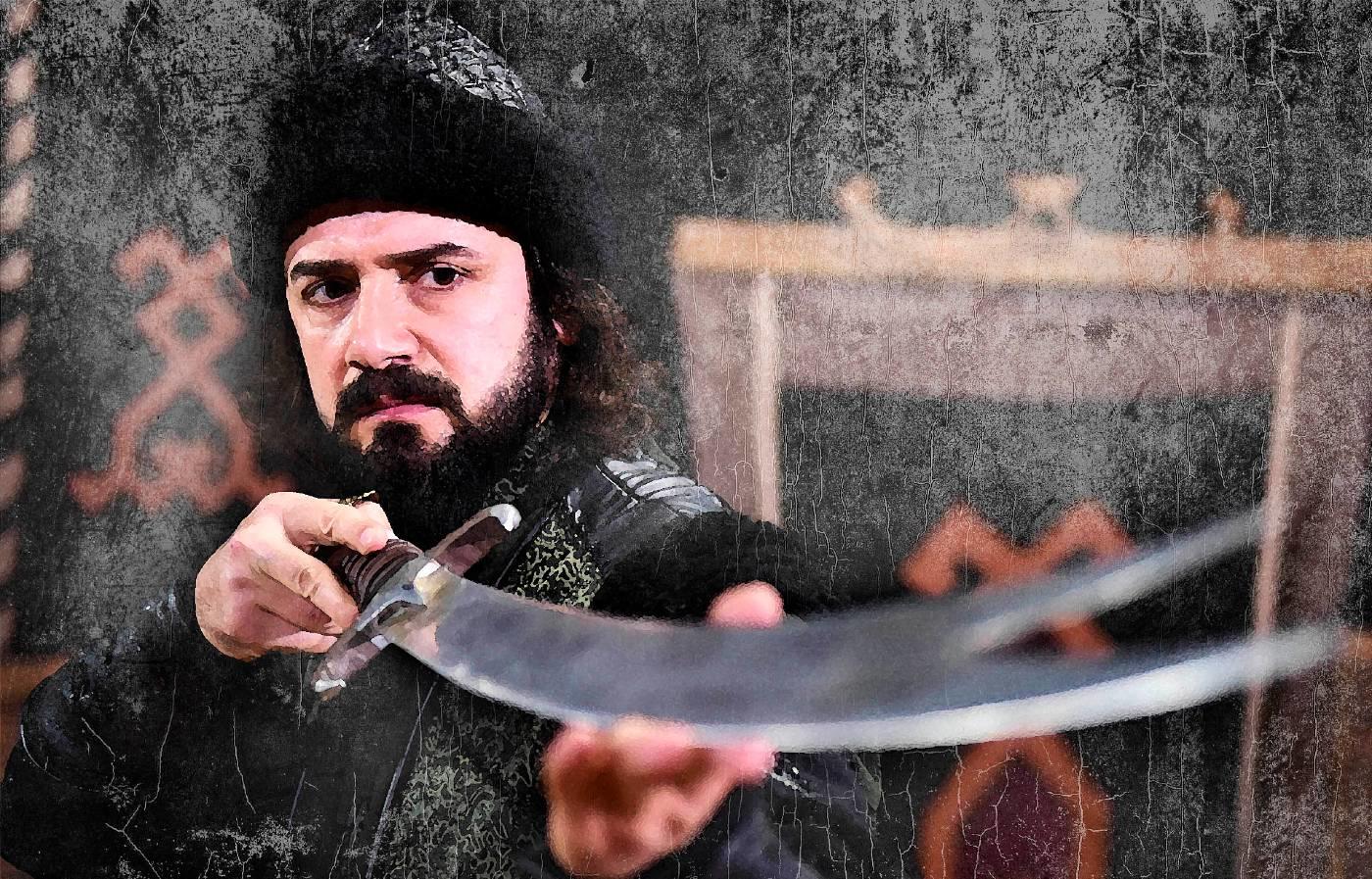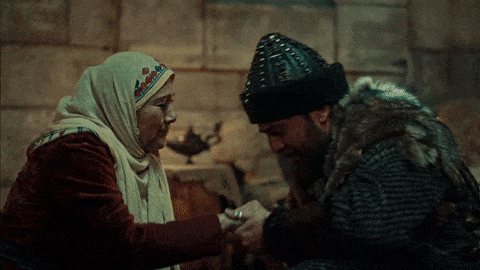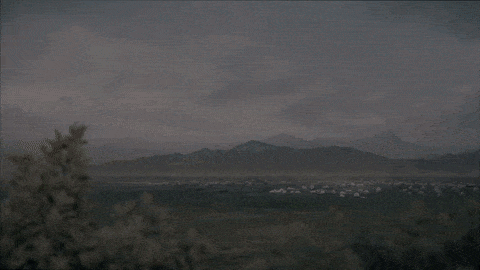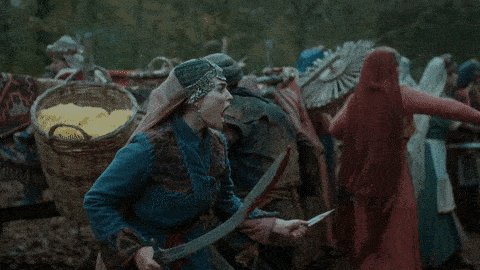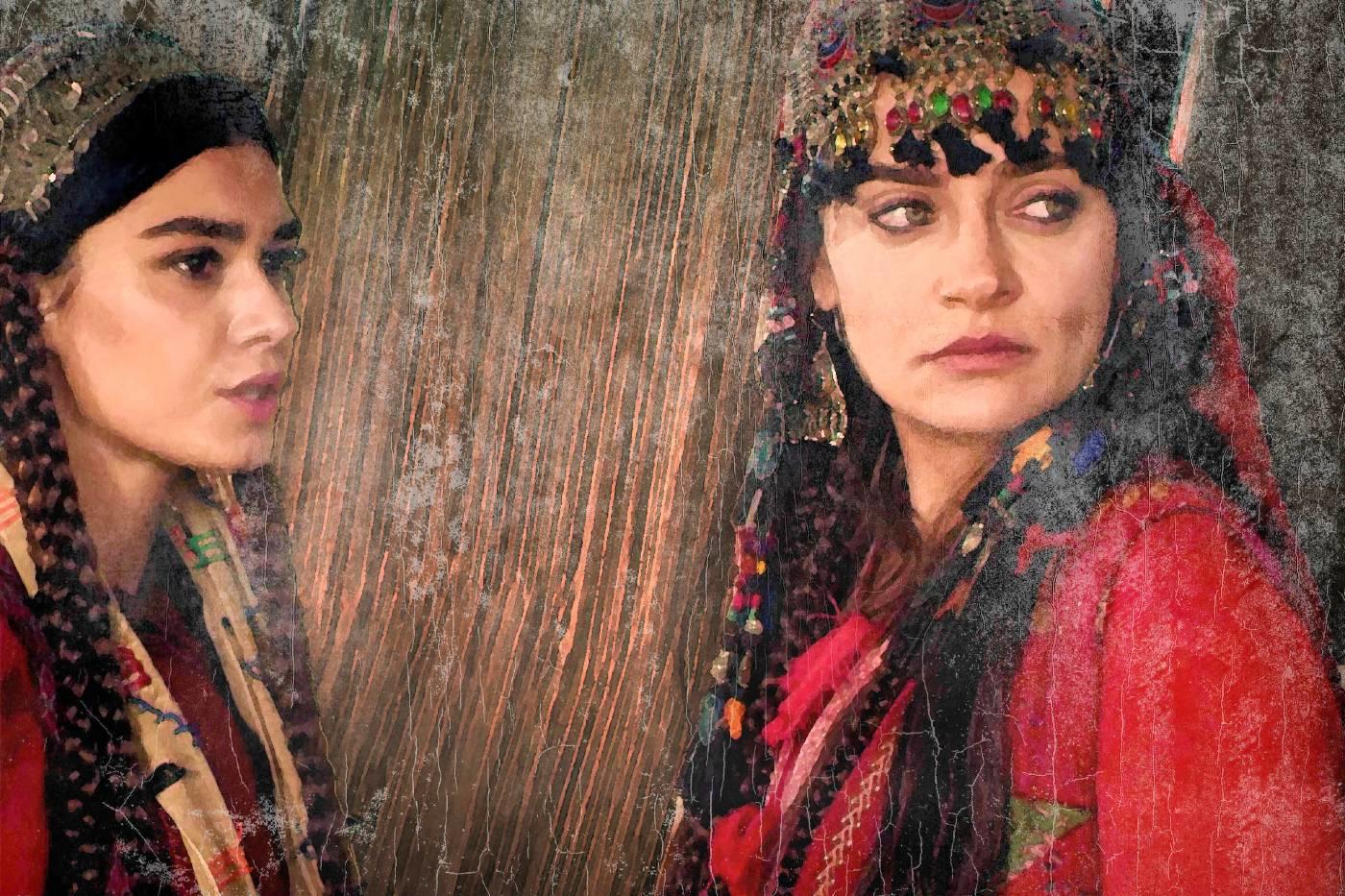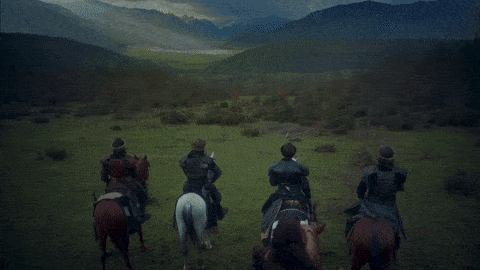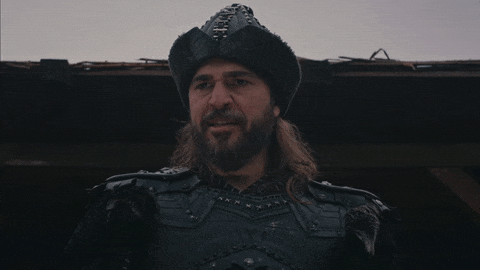How Ertugrul resurrected the Muslim imagination

Editor’s note: This piece contains spoilers for the TV series Dirilis: Ertugrul (Resurrection: Ertugrul).
It was called Lion of the Desert.
The film, funded by Libyan dictator Muammar Gaddafi and directed by Moustapha Akkad, told the story of Omar Mukhtar, the legendary Libyan and Senussi revolutionary who fought against Italian colonialism during the early 20th century.
As the film made its way into cinemas around the world in 1981, resistance movements from Palestine to Kashmir fawned over the words of the old man Mukhtar (played by Anthony Quinn), a teacher turned rebel commander who faced up to fascist Italy at its peak.
“We have stood against you for 20 years. And with the help of God, we will stay with you, till your end,” Mukhtar tells the Italians in the film.
Stay informed with MEE's newsletters
Sign up to get the latest alerts, insights and analysis, starting with Turkey Unpacked
Mukhtar and his band of several hundred Bedouin fighters on horseback, armed with rifles and draped in a jalabiya confronted a modern Italian army armed with tanks and machine guns that exercised immense cruelty on the North Africans, including separating families, burning crops and fields, and building concentration camps that killed tens of thousands.
Mukhtar refused to respond in kind, adhering to an Islamic ethic of war that believed in dignity, even towards enemies. In Italy itself the film was banned on release and was not screened on TV until 2009.
Mukhtar, as a scholar, fighter and Sufi, fought in the mould of Imam Ali, the Prophet Muhammad’s beloved cousin and the fourth caliph of Sunni Islam. Omar Mukhtar was known as the "Lion of the Desert" for his bravery: the Prophet referred to Ali as Asadullah, which means “the Lion of God” in Arabic.
In a review at the time in the New York Times, critic Drew Middleton described Lion of the Desert, which co-starred Oliver Reed and John Gielgud, as lacking nuance and presenting the Italians as harsher than they probably were.
“The Italian campaign in Libya remains as an example of unbridled imperialism [but] some moviegoers might wonder whether the film is a propaganda vehicle for the Arab cause. [Akkad] is an Arab and as such his sympathies are with Mukhtar and his merry men.”
For those who didn’t find Lion of the Desert on their cinema screens, it eventually made its way onto VHS tapes around the globe, bootlegged and screened to fighters resisting occupations and protesters defying authoritarianism.
One Libyan, collaborating with the Italian state, urges Mukhtar to obey the invaders. “They are the government of this country,” he pleads.
“No, "Mukhtar replies. "They take this land by day. But by God, we take it back by night."
“You cannot win this war,” the collaborator continues, “your blood against their metal.”
Hollywood and Muslims
Lion of the Desert trampled upon the accepted civility of western modernity and was a cinematic anomaly in its depiction of resistance to 20th-century colonialism. For Muslims around the world, Omar Mukhtar was not just Libya’s hero, he was a symbol of pan-Arab ideals, a Muslim hero, a dogged anti-imperialist who stood up to injustice, fighting boldly and gracefully for 20 years.
“It is our duty to God to defend ourselves against those who have driven us out of our homes,” Mukhtar says on screen.
The epic was released just as TV viewing increased globally, with the introduction and explosion of video. However, the number of mainstream films or high-level productions that dared to narrate the level of imperialist crimes against Muslim societies or venerated Muslim leaders were few.
By the end of the 1980s the world was convulsed by the end of the Cold War. Hollywood villains defaulted from Soviet hardmen to brown Muslim men with towels wrapped around their heads: even the benign blockbuster Back to the Future (1985) depicted its throwaway terrorists as Muslim and Arab (coincidentally, in this case, Libyan). It only got worse during the late 1980s and 1990s with blockbuster offerings like Rambo III (1988), True Lies (1994) and Executive Decision (1998) deepening the caricature.
The only films at the time containing Muslim characters with redeeming qualities were biographies of superstars, such as Malcolm X (1992) and Ali (2001): even then, these were biopics of Americans whose religious identities were either incidental or underplayed.
Post 9/11 and the vitriol reached new depths in TV shows and video games such as 24, Homeland and the Call of Duty franchise, as Muslims were made to lick the boots of a spiteful and vengeful Western imagination.
Meanwhile, the Western-led invasions in the Middle East and Afghanistan only deepened, leaving a trail of client-regimes and devastated Muslim majority nations across multiple regions. The teenagers who once controlled virtual characters at the neighbourhood video-game arcade were now operating US Airforce drones, hovering over Yemen, Pakistan and Somalia to pick off Muslim lives.
On the big screen, as in real life, Omar Mukhtar was caught and paraded to his oppressors. “We will never surrender. We win, or we die,” Mukthar tells the Italian general following his arrest. “And don't think it stops there. You will have the next generation to fight; and after the next, the next. As for me, I will live longer than my hangman.”
On 16 September 1931, Mukhtar was hanged in front of 20,000 people at a concentration camp in Suluq.
Ertugrul: A legend is resurrected
On 10 December 2014, a new television show, or "dizi" as they are called, aired for the first time in Turkey on TRT 1.
Dirilis: Ertugrul (Resurrection: Ertugrul), created by Mehmet Bozdag, told the story of a young warrior in 13th-century Anatolia who embarks on a mission to find a permanent home for his Turkic tribe, known as the Kayi, who lived as nomads on the steppes of central Asia. There, they seek shelter from the elements, navigate food shortages during harsh winters, and battle marauding Christian Crusaders and Mongols.
At the time the so-called Islamic world, as it is now, was in disarray, with empires like the Ayyubids and the Seljuks a shadow of their former selves. Ertugrul (played by Engin Altan Duzyatan), son of Suleyman Shah, pursues a dream to unite Muslims and finally secure a home for the Turkmen tribes.
To achieve this he moves westward towards Anatolia, the large peninsula which now forms the bulk of modern-day Turkey. At this time, the Seljuk empire, considered the hegemon of the wider region between 1037 and 1194, had suffered from in-fighting and infiltration by both Byzantium and the invading Mongols. And it is within the Seljuk sultanate of Rum, which had seceded from the larger Seljuk empire in 1077, where much of the action of Dirilis: Ertugrul takes place.
Ertugrul and his unit of elite warriors, known as alps, battle the Templars, the Crusaders, the Byzantines, and the Mongols, as well as several collaborators within their own camp and traitors within Rum itself, all in a bid to carve out a home in Anatolia.
Soon, Ertugrul emerges as a key commander and begins to consolidate the Turkic tribes as the sun begins to set on the Sultanate of Rum. His exploits, victories and inspiring leadership eventually pave the way for the formation of a new empire. Ertugrul’s heir, after all, is Osman - the eventual founder of the Ottoman Empire.
Dirilus: Ertugul ended in May 2019 after five seasons. Each season comprised 30 two-hour episodes per season – overall, that’s about 150 films. On Netflix, where it was released internationally, it has been edited to accommodate around 80 episodes of 40 minutes a piece, per season.
Watching Dirilis: Ertugrul is a marathon effort. Each two-hour instalment carries its own arc: intrigue, moral dilemma, bloody battles and a cliffhanger ending. Despite this, its reputation and popularity continues to grow more than a year after it ended, transcending time, space and TV itself.
Like Lion of the Desert, the show is about Muslim history, Islamic ideals and resisting tyranny. Social codes and values are not just relatable, they are the norm and the standard; a self-contained universe of thought and practices, where Muslims are able to see themselves as heroes, villains, collaborators, and not as caricatures written by outsiders.
In Dirilis Ertugrul, standing up to injustice or cruelty aren’t lofty ideals, they are incumbent on faith. But unlike Lion of the Desert, it is a story beyond resistance. It is about overcoming - and winning.
In Turkey, the series has broken new ground and amassed a strong following (and accompanying snark). Those familiar with the rising authoritarianism and populism of Turkish President Recep Tayyip Erdogan point at how his ruling Justice and Development Party (AKP) has instrumentalised the show, using the actors, music and images to propel its agenda and wield influence over its constituency.
The Ottoman Empire: A Timeline
+ Show - Hide1198: Ertugrul Ghazi is born.
1231: Sogut becomes capital of the Osmanli tribe.
1258: Osman I is born in Sogut.
1280: Ertugrul Ghazi dies in Sogut.
1299: Osman I establishes the Ottoman Empire.
1453: Sultan Mehmet II captures Constantinople. The city’s name is changed to Istanbul and it becomes the new capital of the Ottoman Empire.
1683: The Ottomans are defeated at the Battle of Vienna.
1923: The Ottoman Empire is dissolved. Turkey becomes a republic, with Ankara as its capital.
2009: Ertugrul Osman, the last surviving grandson of Ottoman emperor Abdul Hamid II, dies in Istanbul.
Wittingly or not, Dirilis: Ertugrul has come to represent what Turkish secularists see as the Islamisation of the arts and cultural space in the country. With a comfortable depiction of Islamic rituals and modesty as inherently Turkic, the show has been regarded by some political opponents of Erdogan as pedantic, rustic, and revisionist.
For its part, the show’s producers, and even its actors, have made little attempt to separate themselves from the Turkish state’s use of the series as a purveyor of public imagination. Some commentators have even pointed to particular arcs in plotlines that seem to suggest that Dirilis: Ertugrul is a symbol of a neo-Ottoman rebirth as designed by the AKP party and where the undying Ertugrul is actually the imperishable Erdogan.
But it is among Muslims in South Asia and the Middle East, as well in South America and parts of southern Africa that Dirilis Ertugrul has resonated most.
Turkish shows have long attracted audiences far beyond their borders, with translations available in at least half-a-dozen languages. According to Riyaad Minty, director of digital at TRT, Dirilis: Ertugrul has been licensed for broadcast in 72 countries and translated into English, Russian, Spanish and Arabic.
And it’s not merely a question of reach: the depth of international fandom has been breathtaking.
In Gaza, young and old Palestinians rattle off the names of their favourite characters and sing the notes of the show’s theme music. In Pakistan, couples mimic Turkic-styled weddings modelled on the marriage ceremonies from the show.
In Kashmir, couples name their newborns Ertugrul. In the US, two fans launch a podcast called Beywatch to comment and critique the show, in turn amassing a following of their own. The show has revived Sogut, known as the first Ottoman capital, as a tourist magnet, and spawned a universe of memorabilia on the internet.
And in a New Zealand court, Hamimah Tuyan, whose husband Zekeriya was one of 51 killed during the Christchurch mosque attacks in 2019, describes her husband thus: “He was my imam, my bodyguard… my Ertugrul.”
Explaining the surge in the popularity of Turkish shows across the world, Fatima Bhutto writes in New Kings of the World about how audiences connected with the depiction of Muslims and the values presented in the shows:
“Turkish historical drama were not about [imperial] wars in the Muslim lands like Homeland, or fiery sagas warning against unwashed villainous Muslim invaders: here Muslims were kings.”
For many around the world, the characterisation of an Islamic revival, a return to "order", is a yearning to which they have responded. Minty says: “The fact that it’s been able to resonate beyond just the Muslim world shows that, given the opportunity to tell our own stories, we will find that we as humanity have much more in common than we think.”
Ahead of the debut of the Urdu version of Dirilis: Ertugrul on primetime TV in Pakistan in April 2020, Prime Minister Imran Khan said the show displayed Islamic values and carried more cultural and historical weight than Hollywood and Bollywood.
By mid-May, the Urdu dubbed version had broken subscription records on YouTube. By September, its impact on South Asia was felt through a volley of articles that sought to acknowledge and elucidate the feverish mania.
Explaining partly why the series had become such a phenomenon in Pakistan, Iman Sultan writes: "For Pakistanis, Ertugrul was a high-definition experience in a desert of low-quality television, where restricted budgets, industry nepotism and the state’s selective patronage of actors, producers, and channels combine to strangle any possibility of quality creative production."
In neighbouring India, Ertugrul proved a more popular search term than film and TV personality Shah Rukh Khan and even Indian Prime Minister Narendra Modi.
In 2014, Ertugrul had been a peripheral character in Turkish history.
By 2020, hundreds of millions of people around the globe couldn’t imagine the world without him.
The making of an empire
For a global 21st century phenomenon, details about Ertugrul Ghazi and his tribe, even Osman, are scant. Official documentation of the Ottomans only began a century later. But Dirilis: Ertugrul is neither too concerned nor afraid of the facts it does not have. Instead it remains true to the Sufi values of introspection, purification and the shunning of materialism that defined the period as well as to the overarching geopolitics that consumed the days and nights of Turkic people’s survival during the 13th century.
Writing about 13th-century Anatolia in Lineages of the Absolutist State, historian Perry Anderson says that the Seljuk Empire was more interested in the Nile than the Bosphorus. As demonstrated in the show, the Turkic tribes that settled on the frontier faced off against both the Byzantines to the west and the encroaching Mongols from the east.
Who were the Seljuks?
+ Show - Hide- The Seljuks were a medieval Turko-Persian Sunni Muslim empire, originating from a branch of Oghuz Turks.
- At one point, the Seljuk Empire (1037-1171) extended from western Anatolia (modern Turkey) to western China, including parts of the Mediterranean, Middle East and central Asia.
- The Byzantium empire began to decline after the Battle of Manzikert in 1071, which also marked the consolidation of the Seljuks over their adversaries.
- In 1075, part of the Seljuk Empire broke away to form the Seljuk Sultanate of Rum, which was based in central Anatolia and had Konya as its capital.
- The Seljuks played a seminal role in the development of the Turko-Persian tradition and became patrons of the arts and literature.
- The Seljuk Empire collapsed in the mid-12th century. This created a power vacuum in Anatolia, in which emerged many small small principalities.
- The one run the tribe of Osman I eventually conquered the rest to become the Ottoman Empire.
“These frontier warriors and adventurers not only sought lands by their flocks,” he says, “they were also, by a process of self-selection, typically stamped with the so-called ghazi outlook - a militant, crusading faith that rejected any accommodation with the infidel.”
Other historians, such as Cemal Kaffadar, argue that the area along the shifting frontiers were probably more porous, changeable and diverse in faith and trade than we imagine modern borders to be. It was from this disorder that the Ottomans emerged, as they battled their way into establishing a state for the Turks.
Nagihan Haliloglu, a lecturer in the Comparative Literature Department at Ibn Haldun University in Istanbul, says that several historians have questioned the authenticity of historical facts in the series. “What it teaches, I believe, is the Turkish state's foundational ethos, which is upholding the Islamic and prophetic tradition,” Haliloglu says.
In this way, the show invents and projects a pre-Ottoman past that is both reflective of Sufi traditions of the time while consistent with Erdogan’s project of what the late academic Svetlana Boym describes as “restorative nostalgia”.
But it is the introduction of the character of Ibn Arabi (1165-1240), the Arab Andalusian Muslim scholar and mystic, who becomes Ertugrul’s spiritual guide, that best illustrates the show’s proclivity to ethos rather than fact.
In season two, Ertugrul is captured by a vicious Mongol commander, Noyan, and chained to a steel pole. After enduring merciless torture, he passes out. He is visited by Arabi (Ozman Sirgood) in a dream, who arrives with a bowl of water.
After Ertugrul takes a sip, Ibn Arabi narrates a story from the Quran about how a flock of birds stopped a Yemeni warlord and his army of elephants from destroying the Kaaba in Mecca. The birds drop stones on the approaching army, ending the invasion and protecting the sacred site. “When you're in a position of weakness, remember it’s not always the big and the strong who win,” Arabi tells Ertugrul in the dream. “God decides who will be victorious.” Ertugrul awakens momentarily, smiles, whispers “thank God” for the reminder that he is not alone, then passes out once more.
Later in the series, when he takes over a Byzantine castle, Ertugrul spends his first moments locked in a chamber on his knees, begging God not to allow arrogance to overcome him. Soon, Ibn Arabi visits the castle and cautions Ertugrul. Should he want the state to be everlasting, Ibn Arabi says, then Ertugrul would have to “raise men of merit, rule with justice and be fair to all faiths”.
The emphasis on fairness and equality towards non-Muslims in the series appears to serve as an example of what just Islamic rule could look like. Haliloglu says: “Ibn Arabi is the embodiment of the Sufi tradition which the Turks claim they have absorbed through centuries, a tradition that determines the way we live in the world, from where we sit at the table to how we organise our yurts and houses.”
But Haliloglu also disapproves of how Arabi is depicted in the series, saying that he has been reduced to the same type of wizardry as Gandalf the Grey from Peter Jackson’s Lord of the Rings trilogy (2001–2003).
The only difference, it would seem, is that Ibn Arabi carries a tasbih (devotional beads) rather than a staff, and makes zikr (repetition of sacred verses) instead of whispering in Sindarin, one of Middle-earth's fictional languages. He also quotes stories and customs of the Prophet Muhammad, known as the hadith, in times of doubt, rather than offer witty quips to hobbits between puffs from a long pipe. As the soft-spoken white-bearded shaykh, Ibn Arabi’s orientalist depiction as a timeless eastern seer would make Edward Said’s eyes burn.
Yet as anachronistic as his presence in the show might be, Ibn Arabi is also known as the patron saint of the Ottoman empire. Emin Lelic, a professor in Ottoman History, at Salisbury University, Maryland, says: “The teachings of Al-Shaykh al-Akbar (the Greatest Shaykh), as Ibn Arabi was known, took root in Anatolia, where his spiritual successor and adopted son Sadruddin al-Qunawi (Sadruddin of Konya), built a robust school of Akbari thought.”
In other words, Arabi's presence is the symbol of the unapologetic Sufi scholar-warrior archetype that is both fundamental to Ertugrul’s understanding of Islamic justice and integral to the spiritual basis of any future state.
That it is most unlikely that they ever met is of lesser importance.
Swords and sagacity
Tahmid Quazi, a student of martial arts and spirituality from Durban, South Africa, is a fan of Dirilis: Ertugrul. He recalls how he was mesmerised from the opening scene in the very first episode. The show begins with Ertugrul talking to Dild Demir, the ironsmith who turns steel into weapons like axes and swords and daggers.
“God is the truth,” they repeat as they take turns to strike at the heated steel set on an anvil. “God is everlasting.” Ertugrul continues: “There is no sword other than Zulfiqar and no brave man other than his holiness Ali.”
Quazi said the allusion to Ali had him hooked. “Hazrat Ali, peace be upon him, is the paragon of spiritual wisdom and impeccable virtue,” he says, “and the most compelling warrior in the Islamic tradition.”
The reference to Ali is neither incidental nor is it trivial. Ali was known as the chivalrous warrior: his relentless pursuit of comprehensive justice as a fighter and political leader is what would later help define the idea of "the ideal" Muslim leader like Saladin, the 12th-century sultan who recaptured Jerusalem from the Crusaders; or, eight centuries later, a rebel in the form of Omar Mukhtar (in Lion of the Desert, a young orphan named Ali picks up Mukhtar's spectacles following his execution, and therefore the righteous resistance).
“The constant reference to Hazrat Ali, peace be upon him, comes up during the most appropriate and inspiring of moments,” Quazi says, “in his reflections, in his duas, in their marriage ceremony.” He describes Ali as the leader of the Alp warriors, the courageous, the brave, the fata.”
Quazi, who has a PhD in computer engineering, started watching the show in late 2018 and throughout 2019. This past Ramadan, the family started watching it again.
“We wanted to relive and re-learn the lessons, especially to pay closer attention to the spiritual underpinnings portrayed,” Quazi explains. “We are watching it with our son, to show him a good portrayal of Muslims. It’s why we named him Saladin in the first place.”
Quazi’s comments are echoed by UK writer Nafisah Kara, who says that Ertugrul pursues an idea of masculinity that exceeds sword fights. “I’m referring to the characteristics that are desirable in a Muslim man such as loyalty, modesty, respect to the opposite sex and expressions of love,” she says. “Our men need reminding that their masculinity is not based upon how tough, staunch and rigid they are but how compassionate, brave and just they are.”
That’s not to say that the series is not unsightly at times: the violence is remorseless, often stark and inappropriate for children. Traitors lose their heads. Enemies’ throats are slit. There is no pandering to the liberal gaze. The endless slow-motion sequences can be gruelling.
But seeing Muslims on TV and on screen as just leaders, thoughtful scholars and in control of their destiny carries strength.
At a time when so many Muslim communities around the world are facing genocide, ethnic cleansing, rising and rabid Islamophobia, as well as authoritarian and impervious leadership, Dirilis: Ertugrul is cathartic.
'The battle is ours to fight, the victory is God’s'
- Hayme Ana
Lelic says one does not have to look far back to understand the popularity of the show. In the early 20th century, the Ottoman empire still “presented a viable political and spiritual alternative to Western, colonial hegemony” for many Muslims around the world.
“One only has to look at the many letters addressed to [founder of modern Turkey] Mustafa Kemal Ataturk, begging him not to abolish the caliphate in 1924, from Muslims around the world, particularly South Asian Muslims. The politically fractured and subjugated early 20th-century Muslim world yearned for at least some sense of spiritual union, in the form of caliphate, and evidently continues to do so.”
Dirilis: Ertugrul, along with other Turkish shows, has already been banned in Egypt, Saudi Arabia and the UAE purportedly for this precise reason.
For fans outside Turkey, Dirilus: Ertugrul eclipses the contradictions of the Ottomans, even the modern Turkish state. Ertugrul himself is clearly an embodiment of what the Ottomans or Muslim world were meant to be - not what they've become.
“That is one of the clever things about this show - it is set in post-Seljuk times, before the Ottoman Empire, and so the opulence and palaces we associate with the Ottomans isn't there,” Haliloglu, says.
It might also explain why Kuruluş: Osman (Establishment: Osman) the show that succeeds Dirilis: Ertugrul - or Payitaht Abdulhamid, a hyper-nationalist show about the last Ottoman sultan prior to the dismantling of the Caliphate - do not enjoy the same level of success outside Turkey.
Its success has also spawned new shows like Awakening: The Great Seljuks as well as the forthcoming Barbaros, about Hayreddin Pasa, the Ottoman Empire's great naval commander, who lived during the 16th century and was dubbed by the West as among the greatest pirates of the high seas.
“Perhaps, on an emotional level, it might be more palatable and inspiring for Muslims around the world to watch the beginnings of something great, rather than its tragic end,” says Lelic.
Ertugrul, hope and Kashmir
In August 2019, the Indian government removed the semi-autonomous status of Kashmir, which has been subject to decades-long conflict between New Delhi and Islamabad. In the days leading up to the abrogation of Article 370 and in the months following, India imposed a communication blackout on the region. Leaders of the pro-freedom movement were arrested, young boys rounded up and held. Members of India’s administrator class in Kashmir, who usually collaborated with New Delhi, were taken too.
'Even if they move mountains and turn them into dungeons, they can’t stop the light of God'
- Ertugrul
With phones and the internet dead, schools closed and streets under curfew, Kashmiris were plunged into the dark ages, as neighbourhoods and districts were cut off from each other. News travelled by word of mouth, often on foot. Associated Press photo journalists smuggled their work out of Kashmir on memory sticks. Starved of entertainment and hope, Dirilis: Ertugrul was passed around on flash drives, as if contraband: for Kashmiri Muslims, his story was their fight.
Previously, Kashmiris have been moved by Algeria’s fight against French colonialism, by the Irish and Scottish calls for their own independence from the UK, and are among the most vocal on the Palestinian right to self-determination.
Thus Dirilis: Ertugrul, a Turkish show, spoke to Kashmiris, like many others along the Silk Road, on a distinctly cultural level too.
South of Kashmir, in India itself, where Muslims are regularly demonised by much of the media, including Bollywood, the show has instilled confidence and esteem into a community regularly under attack.
“Ertugrul affirms faith and discipline and the fight against injustice,” says Nabiya Khan, a political activist in Delhi, who started watching the show recently. “It is entertaining as well.”
This is not to say the show isn’t free of awkward subliminal messaging. Take the Armenian character Hacaturyan Usta (Gokhan Bekletenler), who Ertugrul saves from a treacherous Turk in season four. Hacaturyan is depicted as the good, compliant Armenian, who owes Ertugrul his life. But he is eventually killed by the same treacherous Turk, mirroring at least one Turkish approach to the whitewashing of the Armenian genocide in the early 20th century.
Or consider how the tribe is seen to disintegrate each time Ertugrul is captured and presumed dead, perpetuating the need and want for a strong leader. Then there is the fetishisation of death on behalf of the nation, as Josh Carney from the American University of Beirut puts it.
Ertugrul does speak endlessly of drinking “the sherbet of martyrdom” instead of collaborating with oppressors. Both Lion of the Desert and Dirilis: Ertugrul offer beleaguered Muslims a frame of reference in understanding the role of native informants, and collaborators, in sustaining their subjugation.
But even then, there are other hints of the strains associated with siratul mustaqeem, or sticking to the path of the righteous. When Ertugrul expresses disappointment at the cowardice of some members of his tribe in season two, Artuk bey (played by Ayberk Pekcan) who later becomes his closest advisor, says to him: “Do not think everyone is as brave as you, Ertugrul bey. If anyone were you, you would be anyone.”
Lessons from the end of history
The allure of Dirilis: Ertugrul, its rampant success, raises deeper questions about the established ideas of the social and economic structure of our lives. During the 1980s and 1990s, just as the Cold War ended and Muslims became the overnight scapegoats for the failings of the West, we were told that we had reached, as Francis Fukuyama described it, the end of history. We were either for consumerism or against western civilization. But Dirilis: Ertugrul upends these assumptions in three ways.
First, it pays careful attention to cultural constructs of the markers of a traditional identity that resonate beyond Turkey: folk music, oral storytelling, family, respect for elders, and a ceremonial approach to food. It also reflects women as empowered and assertive as part of this tradition and not in opposition to it.
Quazi says that the secret of the show lies in its depiction of "brotherhood" including its portrayal of female leadership in Islam. “The women in the Dirilis: Ertugrul household are not reduced and resigned to menial labour and domestic issues, but rather reveal themselves to be a source of peerless inspiration coupled with penetrating intelligence as evidenced by a strong display of leadership."
Whereas Turkish period dramas usually represent women as conniving pets in the harem, Haliloglu says, Dirilus: Ertugrul depicts them as role models, without denying that the moral authority and social privilege still firmly remains with men.
Ertugrul’s mother Hayme, his wife Halime Sultan, his sister-in-law Selcan and, later, other characters like Aslahan and Ilbige Hatun play seminal roles. They talk back. They dictate. They fight. They carry the dead. They aren't placeholders. They shape the narrative and pay homage to the often forgotten or erased role of Muslim women in Islamic history.
Haliloglu says: “People find it intriguing that a show can make tradition look useful and necessary rather than something oppressive. I think this is part of its attraction to non-Muslim audiences as well. The nomadic lifestyle allows more of a parity between the sexes, and I think viewers find that very appealing."
Second, Dirilis: Ertugrul demonstrates how Muslim societies, centred around both the quest for social justice and a strong spiritual core, can exist. The show emphasises the Islamic rituals of ablution, prayer and funerals. If a town or bazaar or village is conquered, the conquerors perform the adhan, or the call to prayer, to baptise the area with Islam.
The level of painstaking detail centring Islam in the show normalises basic Islamic custom and sharia like no other in the history of popular TV. In this way, it embarks on a repurposing of popular Muslim history, with the long and many episodes part of an educational manual for those willing to open their eyes to other possibilities. For every person who fast-forwards through the endless sword fights, there is another who sees these long drawn-out scenes as exorcising the demons of negative Muslim portrayals, frame by frame.
Ertugrul’s chemistry with his closest friends and fellow alps, Turgut, Bamsi and Dogan, as well as, later, with Aliyar Bey (played by Cem Ucan) from the neighbouring Cavdar tribe, is electrifying.
Aliyar, too, is a scholar and a fighter who carries a Zulfiqar, in yet another reference to Imam Ali, stands up to the bigotry of own power-hungry family, to become Ertugrul’s closest ally.
Third, Dirilis: Ertugrul suggests the possibility of an equitable and egalitarian society, marked by low taxes, comfort and care for the weak, the elderly and the poor. That Ertugrul is made to model himself on Ali is to invoke an image of an ideal society, too. It means discouraging excess wealth, rejecting worldly pursuits, redistributing wealth, fair trade and eliminating poverty.
But the reference to Ali is also about the embodiment of taking action at a time of oppression instead of adopting a policy of quietism, or pandering to power, that speaks directly to dilemmas faced by many Muslims today.
Lelic, the professor in Ottoman History, at Salisbury University, Maryland, says that allegory of the encounter between the saint and the warrior perhaps best explains the ultimate charm of the show. The modern world, he says, is really the story of the merchant’s - or the corporation’s - triumph over religious or state authority, in what we understand to be the capitalist-humanist world order.
But this touted capitalist model hasn’t delivered for the vast majority. Instead it has left people alone, disenfranchised and yearning for alternatives. Today, experts ask: is individualism America’s religion?
Even when he later fights under the banner of the Seljuk sultan, becomes a governor, and is eventually gifted Sogut, Ertugrul is still an outsider: he owns only a sword. Later, when his son Gunduz is found to have been financing money lenders who charge interest, which is fundamentally outlawed under Islamic law, Ertugrul strips him of all his perks. “Those who don’t have Allah’s approval, can’t possibly have mine, son,” Ertugrul tells him.
The dissatisfaction, though, is not just with the capitalist-humanist world order, it is with the hypocrisies of the secular world order as well.
The show pushes back against the binaries between religion and secularism that are often imposed on Muslim societies.
And it is this refusal to give in, a stubborn treatise that another world might and could exist, is perhaps Dirilis: Ertugrul’s greatest contribution to the Muslim imagination.
Middle East Eye delivers independent and unrivalled coverage and analysis of the Middle East, North Africa and beyond. To learn more about republishing this content and the associated fees, please fill out this form. More about MEE can be found here.


